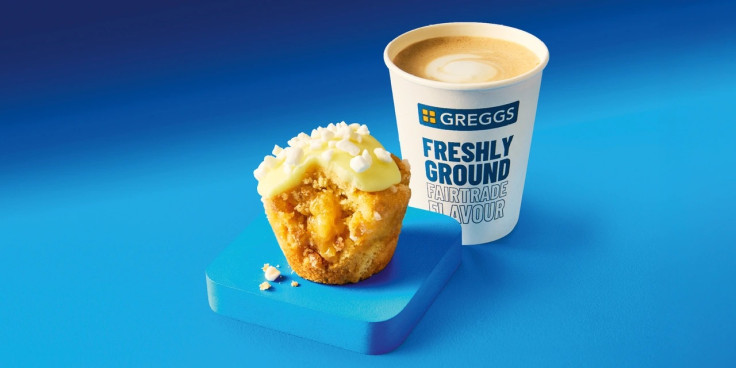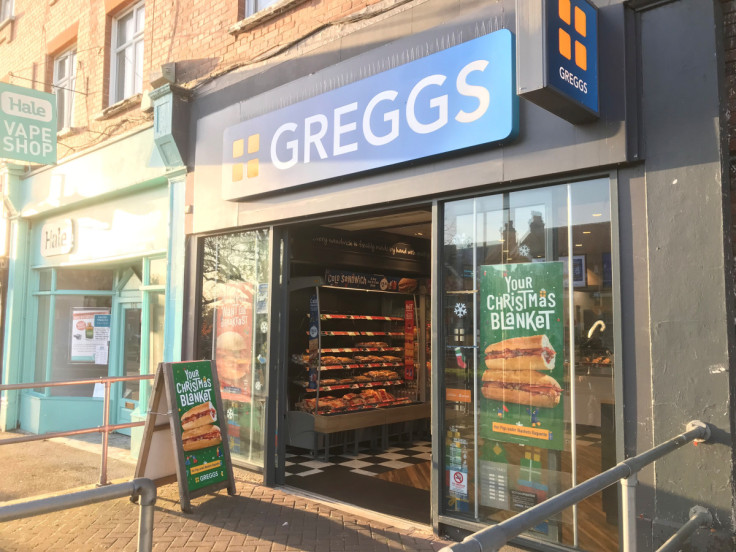Greggs' Shoplifting Measures Indicate More Than Just Petty Theft - UK Is Facing A Bigger Problem
Stores nationwide, from large supermarket chains to independent corner shops, are investing millions in crime prevention.

Greggs, one of Britain's most popular high-street food chains, is taking no chances. Cold sandwiches and bottled drinks, once easily accessible from self-service fridges, are being moved behind the counter in selected branches across the UK. The reason? A steep rise in shoplifting and anti-social behaviour.
According to the officials, this move isn't about making life harder for customers, but it's about safeguarding staff and stock in a climate where retail theft has soared to unprecedented levels.
A Greggs spokesperson explained: 'This is one of a number of initiatives we are trialling across a handful of shops which are exposed to higher levels of anti-social behaviour. Customers can expect to see our full range of great value and tasty Greggs favourites available from behind the counter. The safety of our colleagues and customers remains our number one priority.'
Shoplifting Every 20 Minutes
According to reports, some Greggs stores are targeted as often as every 20 minutes. This is a stark illustration of a growing issue—one that's not just about the odd sandwich going missing but a systemic retail crisis playing out across the country.
According to the Office for National Statistics (ONS), shoplifting in England and Wales has hit a record high, with 516,971 offences recorded in 2024 – a 20% rise from the previous year and the highest figure since police records began in 2003.

In London alone, nearly 90,000 incidents were logged last year. The Metropolitan Police called it 'spiralling out of control.'
Retailers Under Siege
Greggs is far from alone. Stores nationwide, from large supermarket chains to independent corner shops, are investing millions in crime prevention. The British Retail Consortium (BRC) estimates that £4.2 billion ($5.33 billion) was lost to retail crime in 2024, with £1.8 billion ($2.29 billion) spent on security measures such as reinforced doors, CCTV, and body-worn cameras.

Earlier this year,' CEO Roisin Currie revealed the company was testing other security measures, including panic alarms, high-security entry points, and technology to share images of suspected shoplifters directly with police.
Despite these steps, for many on the frontlines of retail, safety still feels out of reach.
A security officer on duty told ITV News about a violent incident during a theft. 'I'm afraid of [for] my life, my children, my wife, my grandchildren,' he said, recalling being bitten and having a knife pulled on him.
More Than Financial Loss
For some businesses, crime costs go well beyond inventory and insurance.
Hanushka Toni, who owns luxury retailer Sellier in Kensington, told the media, 'The security for the new store is coming in at just under £100k ($127,000). The front door alone is costing £65,000 ($82,550). If we don't look after our own security, no one else will.' Despite the investment, she admitted, 'There's always that inherent worry – is it going to happen again?'
According to reports, organised criminal groups are believed to be behind a large portion of the thefts, stealing goods 'to order' and reselling them to local shops. One sting in South London recovered around £150,000 ($190,500) worth of stolen items and resulted in eight arrests.
A Wider Social Problem
Retail crime is symptomatic of wider issues – economic strain, reduced police presence, and a justice system under pressure.
In April, under the initiative of the Neighbourhood Policing Guarantee, Prime Minister Keir Starmer announced that he aims to put 13,000 more officers into neighbourhood policing roles by 2029. He also promised that 3,000 extra neighbourhood officers and community support officers (PCSOs) will be recruited over the next 12 months to be stationed on the streets.

Policing Minister Diana Johnson said, 'This Labour Government will not tolerate the criminality blighting our communities... under our leadership, these crimes will receive the attention they deserve.'
Whether those words translate into meaningful change remains to be seen. But for now, Greggs' decision to put sandwiches behind the counter is a reminder that shoplifting has evolved from petty theft to a major national concern.
© Copyright IBTimes 2025. All rights reserved.




















